Ruth Breeze, University of Navarra
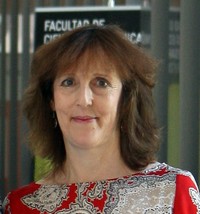
Moving Legal Operations and Dispute Resolution Online: Challenges and Opportunities for Legal Linguists?
The move to digital platforms and screen-based interactions has often been viewed as enhancing efficiency and streamlining administration. During the pandemic, such affordances made it possible for legal and administrative operations to keep going in many countries. Online dispute resolution has also become increasingly popular. However, it has also become apparent that the move to online platforms and video-based operations poses certain challenges. Digitalisation of procedures might exclude vulnerable members of society, or make it more difficult for them to participate. The use of video in judicial procedures has been problematised. Moving dispute resolution online also brings about changes in the way people communicate. This paper will outline some challenges and opportunities for legal linguists in researching the ongoing transformation of communication practices in judicial procedures, ADR and administration.
Ruth Breeze is Full Professor of English at the University of Navarra, Spain, and PI of the Public Discourse Research Group in the Instituto Cultura y Sociedad. Her most recent books are Pandemic and Crisis Discourse: Communicating COVID-19 and Public Health Strategy (with Andreas Musolff, Bloomsbury, 2022), Teaching English Medium Instruction Courses in Higher Education (with Carmen Sancho Guinda, Bloomsbury, 2021), and Imagining the Peoples of Europe: Populist Discourses across the Political Spectrum (with Jan Zienkowski, John Benjamins, 2019).
Bartosz Brożek, Jagiellonian University
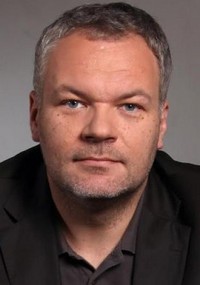
Abstract Legal Concepts
The legal conceptual scheme includes numerous abstract concepts such as ‘obligation’, ‘legal person’, ‘claim’ or ‘guilt’. In the talk, various theories which aim at explaining the nature and function of abstract legal concepts will be assessed and rejected, including the ‘semantic emptiness’ reading by A. Ross, the inferential conception (G. Sartor) as well as the metaphorical approach based on the work of G. Lakoff.
Also, a competing explanation will be provided, one rooted in the dual coding theory and underlining the role of abstract legal concepts in the interplay between thinking in language and using imagination (mental simulation) in solving legal problems.
Bartosz Brożek specializes in law, philosophy and cognitive science. He is a full professor at the Department for the Philosophy of Law and Legal Ethics at the Jagiellonian University in Kraków, and the Director of the Copernicus Center for Interdisciplinary Studies of the Jagiellonian University. His areas of research include law & cognitive science, rationality & argumentation, normativity, legal methodology, philosophy & cognitive science of mathematics, philosophy of science. He is the author of 25 book monographs and more than 100 research papers, including The Methods of Legal Reasoning (Springer), Rule-Following (Copernicus Center Press) and The Legal Mind (Cambridge University Press).
Colette Brunschwig, University of Zurich
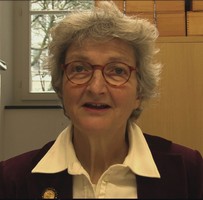 New Horizons for Visual Prosecution under International Criminal Law?
New Horizons for Visual Prosecution under International Criminal Law?
Visual Prosecution of International Crimes Committed by Russia’s Forces in Ukraine as a Case in Point
The Prosecutor of the International Criminal Court (ICC) has deployed a forensics and investigative team to Ukraine. The team is responsible for conducting the ICC’s investigations into international crimes, which fall under the Court’s jurisdiction (e.g., genocide, war crimes, crimes against humanity). The team bases its work on the ICC’s legal framework, as well as on (digital) forensic photography, a branch of (digital) forensics. As criminal sciences, both disciplines belong to the same knowledge domain. Broadly speaking, it constitutes a conglomerate of information aimed at tackling problems in connection with (visually) prosecuting crimes. As such, international criminal law and (digital) forensic photography are related to two other knowledge domains that explore visualization: the digital humanities and the digital social sciences. While the digital humanities investigate data and information visualization (e.g., network visualization, spatiotemporal visualization, digital reconstruction, digital simulation) and media visualization, the digital social sciences focus, among others, on photography and photographs. As its name suggests, (digital) forensic photography visually captures crime scenes as completely and accurately as possible and studies the photographic results. Scant research, however, exists on how the insights of the digital humanities and the digital social sciences into visualization might help advance international criminal law and (digital) forensic photography (see figure below). Exploring this question, this talk suggests that those insights could benefit visual prosecution, and therefore should be brought to the attention of the ICC team responsible for identifying and visually documenting alleged international crimes.
Colette Reine Brunschwig, law educator, researcher, born Zurich, Switzerland, April 10, 1959; M.A., Department of Law, University of Zurich, 1978-83; Ph.D., 1995-2000. Research associate Prof. Dr. Wolfgang Larese, Zurich, Switzerland, 1984-87; Internship Alexander Weber, attorney at law, Zurich, Switzerland, 1987-88; Auditor, District Court, 1988-1989; Legal writer René Flum, attorney at law, Uster, Switzerland, 1990-91; Auditor legal sect., Commercial Registry, Zurich, Switzerland, 1991-92; Senior Research Associate Department of Law, University of Zurich, Zurich, Switzerland, 1992-; Conference co-organizer Internationales Rechtsinformatik-Symposion, University of Salzburg, Salzburg, Austria, 2002; Member of the Scientific Committee Internationales Rechtsinformatik-Symposion, University of Salzburg, Salzburg, Austria, 2005-; Committee member Commission for Occupational Health, University of Zurich, Zurich, Switzerland, 2002-2017; Committee member Human Resources Committee, University of Zurich, Zurich, Switzerland, 2003-2015.
Colette R. Brunschwig is responsible for the content management of the Legal Visualization Unit’s legal image database. Her research focuses on law‘s visualization (e.g., e.g., pictures, diagrams, charts, maps, pictograms, visual animations, visual games), audiovisualization (e.g., videos, films, animations), and multisensorization (e.g., virtual realities, humanoid robots). Her publications, postings, and presentations at national and international conferences strive to promote, expand, and intensify the ongoing debate on these subject matters.
As the visualization, audiovisualization, and multisensorization are important topics of digital law, she undertakes further relevant research. Specifically, she explores in greater depth whether and how visual, audiovisual, and ultimately multisensory legal design might have positive impacts, be it at a cognitive, an emotional, and a motivational level.
Tammy Gales, Hofstra University
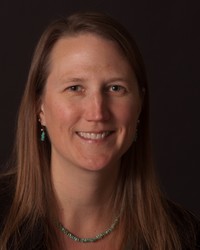
Context is Key: The Use of Corpus Analysis in Statutory Interpretation
Over the past decade, corpus analysis has increasingly been used by judges, lawyers, and legal scholars to aid in the interpretation of U.S. statutes. This practice has been variously embraced (e.g., Lee and Mouritsen, 2018; 2021), empirically challenged (Tobia, 2020; Choi, forthcoming), and criticized (e.g., Hessick, 2017; Bernstein, 2021). One of the main critiques has been the claim that legal corpus linguistics “ignores the crucial contexts in which legal language is produced, interpreted, and deployed” (Bernstein, 2021). This argument has arisen from the fact that the majority of those applying corpus methods to their legal analyses have focused on Original Meaning, an interpretive canon that instructs judges to follow the ordinary or commonsense meaning of the word or phrase in question. This talk presents an analysis of an iconic United States Supreme Court case, Holy Trinity Church v. United States (1892) that demonstrates that corpus methods can equally be applied to legal questions focusing on ordinary meaning and those addressing legislative history – oftentimes with findings that support both interpretive approaches (see, e.g., Gales and Solan, 2020).
The question in Holy Trinity Church concerned whether a law making it illegal to pay the transportation of a person entering the U.S. under contract to perform “labor or service of any kind” applied to a wealthy Manhattan church that had paid to bring its new rector from England to New York. The Supreme Court unanimously ruled that the law did not apply to the church’s contract, relying first on the ordinary meaning of “labor” and second on the legislative history of the single construction “labor or service.” Highlighting the use of corpus linguistic methods, this study tests the arguments presented by the Court and reveals new insights through an analysis of historic and contemporary reference corpora and a specialized corpus of U.S. statutes. The findings challenge the previous critiques by demonstrating that when corpus linguistic methods are used appropriately, they can address a number of important interpretive questions, all of which consider how the meaning under question is used in various contexts.
Tammy Gales is an Associate Professor of Linguistics and the Director of Research at the Institute for Forensic Linguistics, Threat Assessment, and Strategic Analysis at Hofstra University, New York. Her research interests cross the boundaries of language and the law and forensic linguistics, where she applies corpus and discourse analytic methods to the interpretation of meaning in legal statutes and to disputed meanings in trademark cases, and to the examination of authorial stance in threatening communications, parole board hearings of disadvantaged populations, cross-examinations of assault victims, and questioned confession statements. Gales has trained law enforcement from agencies across Canada and the U.S.; has served on the Executive Committee for the International Association of Forensic Linguists and the Law and Corpus Linguistics Consultancy; and is co-editor of the new Elements in Forensic Linguistics series from Cambridge University Press.
Laurence R. Horn, Yale University
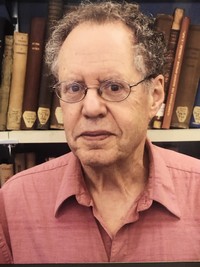
Insincerely Yours: How to Unwarrant Truth
As is often observed (Carson 2010, Stokke 2018, Marsili 2021), to lie or commit perjury one must assert, and to assert one must warrant the truth of what one says. A speaker is normatively accountable for what she asserts, subject to modulation or negotiation (Haugh 2013). But if speaker S, knowing p is false, utters p in a non-truth-warranting context—if S is joking or being sarcastic, if S is rehearsing a script, arguably if S is speaking under threat or duress—then S makes no assertion, practices no insincerity, and does not lie. On commitment-based theories of assertion (Peirce 1932, MacFarlane 2011, Geurts 2018), such a speaker might be said to unwarrant or uncommit to the truth of p. Speakers, especially on the political stage, invoke the sarcasm defense as a get-out-of-accountability-free card, often citing a purported indicator of insincerity accompanying the critical utterance. But the proffered plausible deniability is often implausible, and sometimes legally in doubt. What criteria can be applied to evaluate the credibility of the sarcasm or “only joking” defense, especially when made retroactively? In this talk, I survey and evaluate a set of devices for signaling insincerity across different genres—casual conversation, political speech, testimony under oath—from the 17th century (equivocation, the doctrine of mental reservation, crossed fingers) to our own times (winks, utterance-final “NOT”, the use of sincerity-canceling markers like <jk> and /s in social media posts).
Laurence R. Horn is the Immediate Past President of the Linguistic Society of America. He received his PhD from UCLA in 1972. His dissertation, On the Semantic Properties of Logical Operators in English, introduced scalar implicature. Since then, he has sought to extend the Gricean program for non-logical inference to a class of problems in the union (if not intersection) of logical and lexical semantics and the analysis of negation. Since 1981 he has been at Yale University where he is now Professor Emeritus of Linguistics and Philosophy; he previously taught at UC Berkeley, USC, Wisconsin-Madison, and Aix-Marseille; at LSA Institutes at Stanford, UC Santa Cruz, Illinois, and Michigan State U; and at the LOT summer school at Utrecht. He is the author of A Natural History of Negation (Chicago, 1989; reissued with new introduction by CSLI, 2001) and of over 100 papers and handbook entries on negation, polarity, implicature, presupposition, grammatical variation, word meaning, lexicography, and lying. He edited The Expression of Negation (De Gruyter, 2010) and From Lying to Perjury: Linguistic and Legal Perspectives on Lies and Other Falsehoods (De Gruyter, 2022) and is a co-editor with Y. Kato of Negation and Polarity (Oxford, 2000), with G. Ward of The Handbook of Pragmatics (Blackwell-Wiley, 2004), with I. Kecskes of Explorations in Pragmatics (de Gruyter, 2007), with R. Zanuttini of Micro-Syntactic Variation in North American English (OUP, 2010), and with K. Turner of Pragmatics, Truth and Underspecification (Brill, 2018). With Raffaella Zanuttini and Jim Wood, he is a charter member of the Yale Grammatical Diversity Project (https://ygdp.yale.edu/). He was editor of the Garland/Routledge series of Outstanding Dissertations in Linguistics (1995-2005). A longtime member of the LSA and the American Dialect Society, he is an elected fellow of the LSA and twice served on the Society’s Executive Committee.
